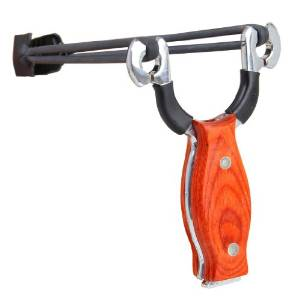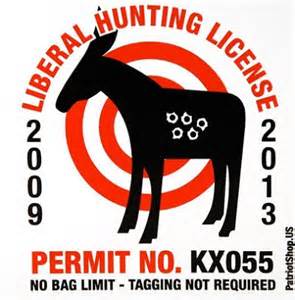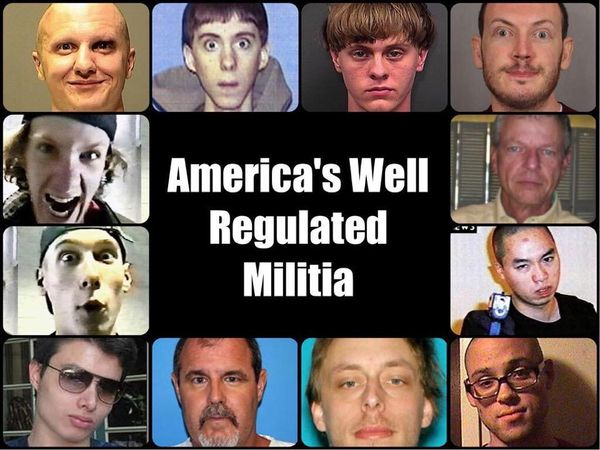The Terror Gap Has Fierce Gun Rights Defenders in a Bind
Nov 20, 2015 11:52:39 #
For leaders of the Republican party and the NRA, theres no clear way to advocate for no compromises on homeland security and the Second Amendment at the same time.
BY MIKE SPIES· @MIKESPIESNYC·November 19, 2015
The recent attacks in Paris, carried out primarily with AK-47 Kalashnikov assault rifles, have drawn attention to a potential gap in Americas own national security. As it stands, persons on the FBIs terrorist watch list can legally purchase firearms in the United States their status is not accounted for in the federal background check system. Over the last 11 years, according to the Government Accountability Office, more than 2,000 people on the list have procured weapons through this loophole.
And since 2007, there have been periodic legislative efforts to close it, all of which have failed in the face of opposition from the National Rifle Association and hardline GOP lawmakers. One exception is Republican Congressman Peter King, who has tried and failed to push through bills that would include terror suspects in the background check system. Anything which they feel restricts the use or the ability to retain a gun theyre opposed to, King told the New York Daily News earlier this week. Its sort of a knee-jerk reaction. He and Democratic Senator Dianne Feinstein are sponsoring a bill to tackle the issue. Known as the Denying Firearms and Explosives to Dangerous Terrorists Act of 2015, it has little hope of going anywhere.
STAY INFORMED
Subscribe to receive The Traces daily roundup of important gun news and analysis.
Yet legislative stonewalling does not solve the political problems that the events in Paris present for the NRA and its conservative allies, who find themselves in a double bind: They must decided whether or not a no-compromise interpretation of the Second Amendment supersedes U.S. national security. The gun lobby and Republican leaders each positions themselves as stalwart defenders of the former as well as the latter. On the question of the so-called terror gap in gun background checks, there is no clear way to be both.
Along with battling phantom gun confiscation schemes and small-town gun ordinances, the NRA believes it serves on the front lines of the fight against jihadists. In September, the organization introduced an ad campaign called Freedoms Safest Place. One of the spokesmen is Marcus Luttrell, the former Navy Seal whose autobiography was the basis for the popular film Lone Survivor. He looks deadpan at a camera and addresses a theoretical Islamic extremist. I will say what I think, he says, worship according to my beliefs, and raise my children how I see fit. And I defend it all with the Second Amendment to the Constitution of the United States.
As it simultaneously defends the terror loophole in the background check system, the NRA has cited the possibility that a person might wind up in the governments database on dubious grounds and protested giving the FBI arbitrary power over a constitutionally protected right. There are premises for those arguments, and media outlets have reported on the loose protocols for being watch-listed. But the public may not prove receptive to the groups talking points, especially given that its core messages include variations on better safe than sorry and that it has built a policy legacy that includes, via Stand Your Ground, special legal protections for gun owners who shoot unarmed people in questionable self-defense scenarios.
In 2013, the New England Journal of Medicine published a poll that asked Americans whether they supported prohibiting suspects on the watch list from buying guns. Eighty-six percent of respondents answered in the affirmative. That included 82 percent of gun owners surveyed and 76 percent of NRA members.
There have been all of these extreme efforts to deter terrorists in this country, says Karen Greenberg, the Director of the Center on National Security at Fordham University. And yet weve missed this huge elephant in the room, and thats access to firearms. By not enhancing background checks, youre taking an essential piece of prevention out of the hands of law enforcement. She notes that with respect ISIS, which was responsible for the rampage in Paris, there is a call for local attacks in a kind of ad hoc way. In the U.S., guns are easy to get. Explosives are tough to make.
Senate Majority Leader Mitch McConnell has so far avoided being drawn into a debate over closing the terror gap, ducking a reporters question earlier this week by saying, Im not particularly familiar with that. (This despite having attended at least three committee meetings on June 4, 2009, April 7, 2011, and March 15, 2012 where legislation to close the loophole was discussed.) As the issue of homeland security overtakes the parties primary races, Republican p**********l contenders may find it harder to skirt the conflict. This is one where the Republican candidates may have to defy the NRA, or the NRA may have do what they rarely do and give ground, David Axelrod, the chief strategist of Barack Obamas White House campaigns, tells The Trace.
The next Republican debate is on December 15. Greenberg says she has a question in mind for the moderators: Can you say you care the most about our national security, she would ask, and not try to keep guns away from dangerous people?
BY MIKE SPIES· @MIKESPIESNYC·November 19, 2015
The recent attacks in Paris, carried out primarily with AK-47 Kalashnikov assault rifles, have drawn attention to a potential gap in Americas own national security. As it stands, persons on the FBIs terrorist watch list can legally purchase firearms in the United States their status is not accounted for in the federal background check system. Over the last 11 years, according to the Government Accountability Office, more than 2,000 people on the list have procured weapons through this loophole.
And since 2007, there have been periodic legislative efforts to close it, all of which have failed in the face of opposition from the National Rifle Association and hardline GOP lawmakers. One exception is Republican Congressman Peter King, who has tried and failed to push through bills that would include terror suspects in the background check system. Anything which they feel restricts the use or the ability to retain a gun theyre opposed to, King told the New York Daily News earlier this week. Its sort of a knee-jerk reaction. He and Democratic Senator Dianne Feinstein are sponsoring a bill to tackle the issue. Known as the Denying Firearms and Explosives to Dangerous Terrorists Act of 2015, it has little hope of going anywhere.
STAY INFORMED
Subscribe to receive The Traces daily roundup of important gun news and analysis.
Yet legislative stonewalling does not solve the political problems that the events in Paris present for the NRA and its conservative allies, who find themselves in a double bind: They must decided whether or not a no-compromise interpretation of the Second Amendment supersedes U.S. national security. The gun lobby and Republican leaders each positions themselves as stalwart defenders of the former as well as the latter. On the question of the so-called terror gap in gun background checks, there is no clear way to be both.
Along with battling phantom gun confiscation schemes and small-town gun ordinances, the NRA believes it serves on the front lines of the fight against jihadists. In September, the organization introduced an ad campaign called Freedoms Safest Place. One of the spokesmen is Marcus Luttrell, the former Navy Seal whose autobiography was the basis for the popular film Lone Survivor. He looks deadpan at a camera and addresses a theoretical Islamic extremist. I will say what I think, he says, worship according to my beliefs, and raise my children how I see fit. And I defend it all with the Second Amendment to the Constitution of the United States.
As it simultaneously defends the terror loophole in the background check system, the NRA has cited the possibility that a person might wind up in the governments database on dubious grounds and protested giving the FBI arbitrary power over a constitutionally protected right. There are premises for those arguments, and media outlets have reported on the loose protocols for being watch-listed. But the public may not prove receptive to the groups talking points, especially given that its core messages include variations on better safe than sorry and that it has built a policy legacy that includes, via Stand Your Ground, special legal protections for gun owners who shoot unarmed people in questionable self-defense scenarios.
In 2013, the New England Journal of Medicine published a poll that asked Americans whether they supported prohibiting suspects on the watch list from buying guns. Eighty-six percent of respondents answered in the affirmative. That included 82 percent of gun owners surveyed and 76 percent of NRA members.
There have been all of these extreme efforts to deter terrorists in this country, says Karen Greenberg, the Director of the Center on National Security at Fordham University. And yet weve missed this huge elephant in the room, and thats access to firearms. By not enhancing background checks, youre taking an essential piece of prevention out of the hands of law enforcement. She notes that with respect ISIS, which was responsible for the rampage in Paris, there is a call for local attacks in a kind of ad hoc way. In the U.S., guns are easy to get. Explosives are tough to make.
Senate Majority Leader Mitch McConnell has so far avoided being drawn into a debate over closing the terror gap, ducking a reporters question earlier this week by saying, Im not particularly familiar with that. (This despite having attended at least three committee meetings on June 4, 2009, April 7, 2011, and March 15, 2012 where legislation to close the loophole was discussed.) As the issue of homeland security overtakes the parties primary races, Republican p**********l contenders may find it harder to skirt the conflict. This is one where the Republican candidates may have to defy the NRA, or the NRA may have do what they rarely do and give ground, David Axelrod, the chief strategist of Barack Obamas White House campaigns, tells The Trace.
The next Republican debate is on December 15. Greenberg says she has a question in mind for the moderators: Can you say you care the most about our national security, she would ask, and not try to keep guns away from dangerous people?
Nov 20, 2015 12:57:08 #
I will remind you that our country's whole legal system is based on the concept of innocent until proven guilty.
Nov 20, 2015 14:11:09 #
greymule wrote:
For leaders of the Republican party and the NRA, t... (show quote)
problem is the last sentence- exactly what is a dangerous person and who gets to decide what a dangerous person is. Also can the definition of "dangerous person" be changed at the whim of some bueaurocrat?
Nov 20, 2015 14:24:41 #
It's all mute. Pretty obvious to me that even in well regulated gun control nations it is very possible to acquire wh**ever one may desire for nefarious intentions. All this BS about "gun control" is just BS. If you want a gun you can get one easily even in places where guns are not legal for private ownership!
Nov 20, 2015 14:28:54 #
Nov 20, 2015 15:12:57 #
Hey Greymutt, I'm going to another gun show this weekend? Do you want a slingshot or a Frisbee?
Nov 20, 2015 15:17:28 #
HEART wrote:
Hey Greymutt, I'm going to another gun show this weekend? Do you want a slingshot or a Frisbee?
Get him a Frisbee as all dogs love to chase a Frisbee around in circles.
Nov 20, 2015 15:18:42 #
HEART wrote:
Hey Greymutt, I'm going to another gun show this weekend? Do you want a slingshot or a Frisbee?
Wow, I can't believe they still allow those there.
Nov 21, 2015 10:31:24 #
bodacious wrote:
Get him a Frisbee as all dogs love to chase a Frisbee around in circles.
:D :D :D :D :D :D :thumbup: :thumbup:
Nov 21, 2015 10:36:21 #
idaholover wrote:
Wow, I can't believe they still allow those there.
Actually, they have quite a few "non-lethal" weapons at the shows, including slingshots!

I encourage all conservatives to pick up one of these!

Nov 21, 2015 13:28:08 #
greymule wrote:
For leaders of the Republican party and the NRA, t... (show quote)
the Solution is very simple Follow the Constitution and Laws of our Nation:
Close the Damned Borders, don't bring in Terrorist and make the Security of American Citizens the top Priority!@@@
If the Frigging IRS can track whether I pay My Taxes or not the FBI/DHS, etc., should be able to track those who would harm us or the "Terrorist & Domestic Fruit Cakes those whom have been treated or known to have Mental Issues" who want a gun.
I have no problem with having My Background checked for a gun purchase.
Should I be deemed by a Board of Medical Doctor's to be Mental Incompetent to own a gun, drive or live and care for myself...then of course I should not have a gun, car or live by myself...a little Common Sense and Common Sense Civil Debate keeps us all living as Free Citizens with Liberty and Justice for All..
With the above ramblings, I strongly object big time to denying my rights to own guns for the protection of my Family, Hunting and Security of our Nation as long as I am deemed to be of sound mind and have my Common Sense.
and I think Gun Free Zones are I***tic Ideas...it tells the Thugs where the sitting ducks of our Society are swimming!@
I fully support the Constitution and the NRA!@
I care about "All American Citizens" of either Political Rant over Muslim's Terrorist or Anyone Domestic or Foreign who would harm them!!@
I believe in the Sovereignty of our Nation, Obedience to the Laws of our Nation!@
Sadly the majority of POS in Washington on either side of the Political Spectrum don't seem to have the same opinion.
my opinion, welcome to chew on it..
:-D :-D :-D :-D
Nov 21, 2015 13:31:38 #
Nov 21, 2015 15:57:36 #
boberic wrote:
problem is the last sentence- exactly what is a dangerous person and who gets to decide what a dangerous person is. Also can the definition of "dangerous person" be changed at the whim of some bueaurocrat?
I think anybody on the no fly list should not be allowed to buy firearms.
Nov 21, 2015 16:49:36 #
Nov 21, 2015 17:23:48 #
If you want to reply, then register here. Registration is free and your account is created instantly, so you can post right away.










